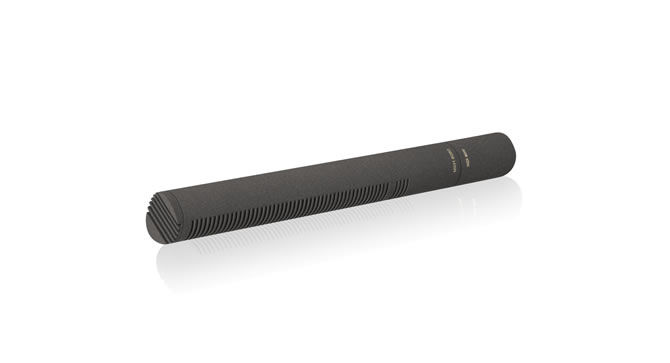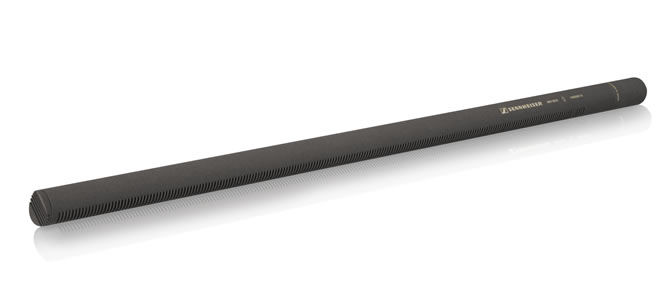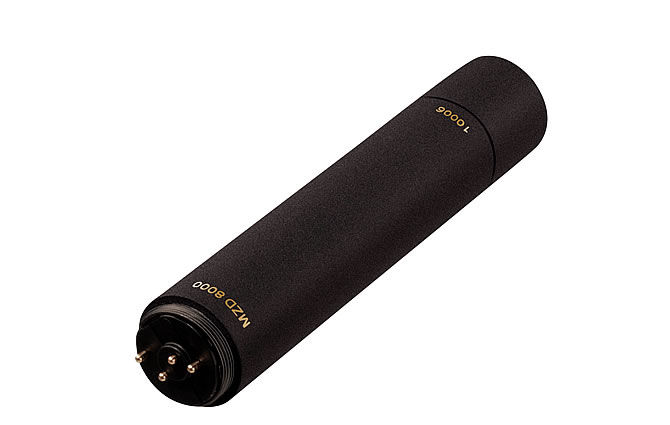At the IBC in Amsterdam, audio specialist Sennheiser is showcasing its MKH 8060 and MKH 8070 shotgun microphones for broadcasting. Both microphones can be used in analogue set-ups or – in combination with the MZD 8000 digital module – as digital AES42 microphones. The very compact MKH 8060 is a versatile short-gun microphone, equally at home on or off camera, while the long MKH 8070 rifle microphone is a specialist for more distant sound sources and is the perfect choice for sports reporting and nature recordings. Both models feature a natural and very lifelike sound, as off-axis sound is attenuated without colouration. Their radio-frequency condenser principle also makes both microphones extremely weather-resistant, ensuring that they can cope even with climatically difficult conditions, such as extreme cold and moisture.
“For the MKH shotgun microphones, a natural, lifelike sound was very important for us,” explained Kai Lange, Product Manager Professional Wired Microphones at Sennheiser. “Sound engineers are often faced with the problem that gun microphones can colour the sound if they are not aimed precisely at the sound source. This is a disadvantage particularly in interview situations, as the character of the speaker’s voice is altered. For that reason, the MKH 8060 and MKH 8070 are designed in such a way that the sound signal only becomes quieter if the sound source does not lie on the axis of the microphone. The sound itself remains completely natural.” This is especially important when indoors where off-axis room reflections can colour the sound; this effect is minimised with the new design of the interference tube in the microphones.
Both condenser microphones work on the RF principle that Sennheiser has been using for 50 years and has developed to absolute perfection. The benefits of this principle and the symmetrical capsule design of the MKH series are extremely low inherent self-noise, which means that even the finest sound structures remain intact, high climatic resistance, transparency, low distortion and relatively high output signal voltages. RF microphones are inherently fully floating and balanced and do not require an additional balancing circuit or transformer to protect them from external interfering signals.

Sennheiser MKH 8060 – the versatile all-rounder
The MKH 8060 lives up to its name as a short gun: the microphone measures just 14.5 cm and weighs a mere 112 g with XLR module, making it ideal for use as a camera or boom microphone. Its range of applications includes outdoor recordings, studio applications for film and television or as an audience microphone for mixing audience reactions. “We are setting a new industry standard with this microphone,” explained Kai Lange “It is compact, light, easy to handle and really has an exceptionally natural sound.”

Sennheiser MKH 8070 – the specialist for distant sound sources
The MKH 8070 rifle microphone features an extreme directivity that enables even very distant sounds and events to be reliably recorded. For broadcasters, this microphone is an ideal tool for sports events, as well as for film and television recordings, both in the studio and outdoors. It is also especially useful for nature and wildlife recordings. “In sports broadcasting, the MKH 8070 is like an ‘ear’ into the stadium. A whole new world of sound opens up to the TV audience: they can hear the sound of the ball, comments by players and so on. Sports broadcasts become ‘alive’ with sound, and the viewer can take centre seat.”

Digital module and filter accessories
As a member of the MKH 8000 family, both microphones are modular and can easily be combined with the MZD 8000 digital module, thus turning them into digital microphones according to the internationally agreed AES42 specifications. In combination with the DMI 2 portable interface from Neumann, the shotgun microphones are ideal for mobile, digital broadcasting. Also available is the MZF 8000 filter module which features a switchable -10dB pad and a switchable roll-off filter that further suppresses any wind noise that might penetrate a ‘hairy’ cover and basket windshield.
For especially unobtrusive use of the MKH 8060, the XLR module of the microphone can be removed and the microphone head connected to a remote cable or extension tube. Thus, the microphone can be mounted onto smaller cameras or used for more unobtrusive fixed positioning in a TV studio. All microphone modules are Nextel-coated to avoid irritating light reflections.


